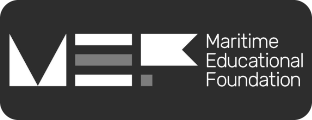Why should we hire you? Interview techniques for seafarers
Posted on 18 September 2017 by Nick Chubb
Whether you’re in the Merchant Navy or Royal Navy, working at sea or ashore you will likely have to go to a job interview at some point. No matter how many tickets or years of experience you have it’s highly unlikely you will get any job without going through some sort of interview. It’s not a perfect system, some fantastic employees interview badly, and some terrible employees are great at interviews, but for now, it’s the system we have to use.
Once you’re happy you have the skills and experience you need to do a job, you should start working on your interview skills because, like it or not, that is what’s likely to be the difference between getting your dream job and not.
Why should we hire you?
Your interviewer may not ask you this question directly, but that is what they’re trying to work out. Any job description will have a set of competencies you will need to fulfil. Before you go into an interview you should match yourself against each of those competencies and have a real-world example of a time when you have done something that fulfils it.
If they’re looking for a team player, you should be able to demonstrate when you’ve worked well in a team; this shouldn’t be difficult if you’ve worked on ships. If they’re looking for a problem-solver, you need to have a specific challenge in your back pocket that you used your brilliant problem-solving skills to resolve.
You’ve probably already got the required “core competencies” for the role (eg. Degree, Master Mariner ticket) otherwise you won’t have been invited to interview. Interviews usually, but not always, focus on “soft skills” such as management or communication, so make sure you’re able to demonstrate them.
Do your research
Sometime early on in any interview, you’re likely to be asked what you know about the company. In reality, no one really cares what you know, but they do care that you’ve taken some time to research the company and the role. When we say research, we don’t just mean looking at their website. Make sure you’ve carefully read the job description in full, check whether they’ve been in the news (you can set up Google news alerts for this), take a look at the company social media profiles, the LinkedIn profiles of your interview panel, and check for reviews on Glassdoor.
If you’re armed with plenty of information on the role and the company you’re far more likely to impress during the interview and far more likely to ask the right questions later on.
Look and act the part
First impressions count, and it’s important to dress like you mean business whatever job you’re applying for. Every company will have slightly different dress codes but a smart business suit or dress for an interview is never a bad idea.
First impressions aren’t just based on how you’re dressed, it’s also how you act. Smiling, eye contact and a firm handshake go a long way to building rapport and demonstrating confidence. People will make a judgement on you within the first couple of minutes of the interview starting; by dressing the part and building rapport straight out of the gate you will do yourself a lot of favours.
Don’t be late
It’s better to be two hours early than one minute late. Hiring managers and HR managers are busy people, they’ve got teams to run and their time is valuable. If you’re late, no matter what the circumstances, you will annoy the panel and you will have an uphill battle from there. Of course, time-keeping shouldn’t be a problem if you’ve worked at sea, but if you’ve got far to travel or there are other factors outside of your control make sure you build in some extra time to allow for something going wrong. If you know you’re going to be late and there’s absolutely nothing you can do about it make sure you call ahead to explain and apologise.
If you’re five minutes early, you’re just on time.
Check your social media history
91% of employers now check social media to screen job applicants. Have you got any skeletons in your social media closet? Are you tagged in the photos from that run ashore in Singapore? Your social media accounts have a very long memory and you should be comfortable talking about anything on there in a job interview.
If there is anything in your social media feed that you aren’t comfortable talking about in an interview delete it, or as a minimum make sure your account’s privacy settings are set up so that people you don’t know can’t see it.
Ask questions
As well as revealing a lot about your potential employers, the questions you ask will reveal a huge amount to your potential employers about you. If you only ask about salary, time off, and bonuses, it will become fairly obvious to the interview panel what your priorities are. Asking about learning and development opportunities, company culture, and where they think the company is headed in the next five years will show that you’re not just interested in money and time off.
Interviewing is a two-way street, it’s not just about whether they like you. You’re likely going to commit around 40 hours per week for the next few years to these people and this job, make sure you’re armed with all of the facts before making any kind of decision about whether to take a job offer or not.





